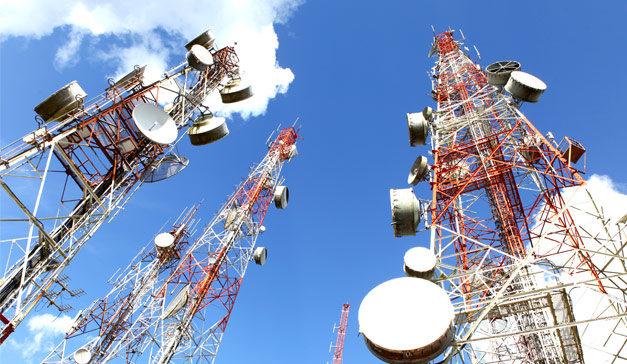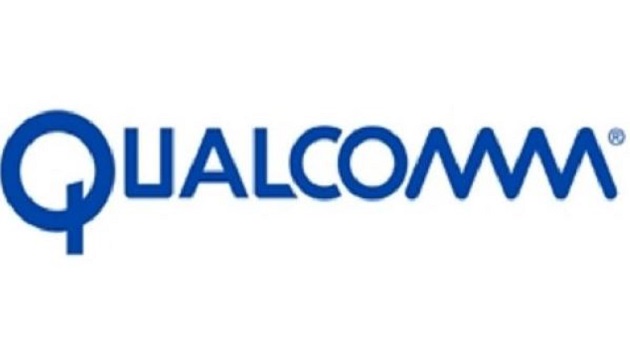Telecom
Telecommunication Masts Pose No Threat To The Public — Expert

Dr Emmanuel Nwokorie, Chief Radiographer in Garki Hospital, has said that telecommunication masts do not emit radiations capable of causing harmful health challenges.
Nwokorie, who is also a Nuclear and Radiation Physicist, said this in an interview with journalists yesterday in Abuja.
He said that the non-ionising rays coming from the installations were not as dangerous as X-rays and Gamma rays as being speculated.
Non-ionising radiation is the term given to radiation in the part of the electromagnetic spectrum where there is insufficient energy to cause ionisation.
“Masts generally emit non-ionising lasers radiation; lasers in our ways can be compared to microwave, but they are non-ionizing; they may not be harmful immediately.
“I do not agree that telecommunication masts can cause harm because the rays coming from the mast are not ionizing, but just lasers; they cannot cause immediate health challenges.”
Nwokorie said that though non-ionising radiation lacked the capacity to knock off the cell from where they were, exposure should be minimized to avoid harm.
He said that the cluster of masts called for concern because the level of rays and energy emitting from three or more masts at a time were more than a single mast rays.
According to him, people who live close to a cluster of masts may risk some level of health challenges over time.
He, however, disagreed that telecommunication mast could also cause cancer.
“I do not agree with people that say telecommunication mast can cause cancer because the radiation coming from the masts is non-ionising; so, they cannot cause cancer.”
He added that research was still ongoing to quantify the level of emissions and the closeness of the houses that could lead to health challenges.
Nwokorie, however, warned that continuous exposure to the radiation from the telecommunication masts could make life support gadgets to malfunction or cause death.
“Although masts radiations are not as serious as x-ray and Gamma rays, if the person is with cardiac cable and other life support gadgets, it could be disastrous; he may even die.
“When masts are mounted in residential areas, we may then look at the health implications, because as light passes through, people who are close to the masts might have health problems,” he said.
Nwokorie, therefore, advised people who live close to the masts to demand safety reports from the owners of such facilities.
Telecom
Why Econet Wireless is Switching to VFEX

After nearly 30 years on the Zimbabwe Stock Exchange (ZSE), Econet Wireless, the country’s biggest technology company, is preparing to leave the bourse and move its property and infrastructure assets to the US dollar-based Victoria Falls Stock Exchange (VFEX).

Econet plans to spin off its towers, property and power installations into a new company, Econet InfraCo, which will be listed on the VFEX. Its mobile network operator business will be delisted from the ZSE.
Econet believes the market has failed to properly value its business and its assets. At the time Econet first released a cautionary on December 3, its market capitalisation was the equivalent of US$628 million.
A rally over the past days has lifted it to a market capitalisation – the number of shares times the share price – to around US$1 billion.
“For the last several years, the company has traded at a significant discount to its peers across Africa which trade at 6 – 8x EV/EBITDA.
“These peers have all already separated and realised value from their tower infrastructure whereas the company still owns its tower and other passive infrastructure which the company has now housed under a separate infrastructure company to be listed on the Victoria Falls Stock Exchange,” Econet said.
Econet will keep 70% of Econet InfraCo, with up to 30% used to settle an offer to shareholders who do not wish to remain invested.
The company argues that infrastructure assets are better suited to the VFEX, which trades in US dollars and attracts investors familiar with property and long-term infrastructure.
“Unlike the mobile network operator business in Zimbabwe, infrastructure assets represent a different class of investment, one that is better understood and valued within USD-based property and infrastructure markets.
“This is demonstrated by the higher Price-to-Earnings multiples at which listed real estate and infrastructure companies trade on the VFEX,” the company said.
Econet dominates Zimbabwe’s mobile market, with 88% of voice traffic, 82% of data usage and 73% of all subscribers. It has built the largest portfolio of telecoms assets.
By the end of the second quarter, it had 234 5G sites, 1,700 LTE sites, 1,900 3G towers and 2,860 2G locations.
In the half-year to August alone, it added 27 new 2G–4G sites and 100 new 5G sites.
In addition to these locations, Econet also holds other properties and power assets, including solar installations, Tesla batteries and generators.
The move follows a well-established trend in Africa.
MTN and Airtel Africa sold towers in Nigeria, Ghana, Uganda and Kenya to independent operators like IHS Towers and Helios Towers. Vodacom, Orange and Telkom South Africa have also carved out tower units through sale-and-leaseback deals.
Credit: Newsday
Telecom
Qualcomm Completes Third Edition of Make in Africa Startup Mentorship Program

Qualcomm Technologies Inc. has announced the successful completion of its third annual Make in Africa (QMIA) Startup Mentorship Program, marked by the virtual Make in Africa Finale 2025. The initiative underscores Qualcomm’s long-term commitment to fostering Africa’s vibrant innovation ecosystem through the broader Qualcomm Africa Innovation Platform.

Highlights:
- The 2025 Qualcomm Make in Africa program supported ten innovative startups from Kenya, Tunisia, Nigeria, Benin and Senegal, each addressing local challenges by developing tech-enabled solutions across critical sectors such as healthcare, sustainable agriculture, climate resilience and mobility.
- This year, the program attracted more than 400 applications from 19 countries, showcasing remarkable talent across the continent.
- Farmer Lifeline, of Kenya, was announced as the 2025 Wireless Reach Social Impact Fund winner, recognizing its impactful use of wireless technology.
- Applications for Qualcomm Make in Africa 2026 are now open. Applicants can visit the Qualcomm website to apply.
As a flagship initiative of Qualcomm, the equity-free program shines a spotlight on the creativity and drive of African founders leveraging advanced technologies such as AI, 4G/5G, robotics, connectivity and IoT to address pressing real-world challenges.
Now in its third year, the program remains steadfast in its mission to accelerate early-stage technology startups by providing tailored mentorship, targeted business coaching, expert engineering consultation and comprehensive intellectual property protection guidance – exemplified by resources such as Qualcomm’s L2Pro Africa training. This holistic support empowers founders to transform their visionary ideas into sustainable, market-ready solutions.
“This year’s cohort has demonstrated incredible ingenuity, transforming complex challenges into scalable, tech-driven solutions that will drive social and economic impact across the continent,” said Elizabeth Migwalla, Vice President International Government Affairs, Qualcomm Incorporated.
“Innovation is the driving force behind Africa’s future, and this year’s startups are a brilliant demonstration of that. The African Telecommunications Union (ATU) is proud to partner with Qualcomm for the Make in Africa 2025 program,” said John Omo, Secretary General of the ATU. “We are working to harmonize spectrum management policies, regional standards, and open data practices, but we know that true progress relies on large-scale support. That’s why we call on governments, universities, investors, and industry to support these initiatives – and any endeavor that places African ingenuity at the forefront.”
The 2025 cohort includes the following groundbreaking startups:
- Aframend (Nigeria): Uses AI to explore African medicinal plants for new drug discovery and aims to turn local remedies into safe, affordable treatments for diseases.
- AmalXR (Tunisia): Offers AI-powered virtual rehabilitation sessions on everyday devices, enabling easy patient and clinician progress tracking.
- Archeos (Benin): Automates fish farming with solar-powered sensors and feeders, providing real-time data on water quality and feeding levels for improved fish health.
- ClimatrixAI (Nigeria): Installs connected weather and flood stations with an AI platform to forecast street-by-street risk, enhancing early warnings and disaster response for local communities.
- Ecobees (Tunisia): Builds smart hive monitors and a digital platform for real-time insights into beehive-health, to protect bees and crops that depend on them.
- Edulytics (Senegal): Applies AI on handheld ultrasound devices for early detection of liver disease, aiming to make this special screening widely accessible.
- Farmer Lifeline (Kenya): Deploys small, solar-powered devices that scan fields for pests and diseases and send alerts straight to farmers’ phones to protect crops.
- Pollen Patrollers (Kenya): A women-led agritech startup using connected hive technology and AI to keep bee colonies healthy.
- Solar Freeze (Kenya): Provides solar-powered cold rooms with remote monitoring enabling farmers to keep fruits and vegetables fresh and increase earnings.
- Pixii Motors (Tunisia): Designs electric scooters with smart batteries that can be swapped in and out at local stations, aiming to revolutionize urban mobility.
Wireless Reach Social Impact Fund Winner
Kenyan innovator, Farmer Lifeline, was announced as the winner of the 2025 Wireless Reach Social Impact Fund. The fund, sponsored by Qualcomm® Wireless Reach™ Initiative, champions the innovative use of wireless connectivity to address pressing community. As the winner, Farmer Lifeline will receive dedicated funding and tailored technical support to scale its groundbreaking solution.
“Farmer Lifeline stood out with its innovative small solar-powered devices that scan fields to detect pests and diseases. This technology enables local farmers to effectively protect their crops, significantly increase yields, and improve food security”, stated Erica Ciaraldi, Vice President, Wireless Reach, Qualcomm Incorporated.
“Their visionary approach and dedication to agricultural resilience have positioned them as leaders in their field. They are driving meaningful change for smallholder farmers and inspiring others across the continent. This fund will empower them to scale their impact further, enabling broader reach and deeper influence across Africa and the world.”
In recognition of the groundbreaking innovations demonstrated by all finalists, each will receive stipends designed to accelerate their growth, support strategic development and safeguard their intellectual property. This comprehensive support underscores Qualcomm’s commitment to fostering innovation and ensuring these visionary projects can thrive sustainably.
Looking ahead: Launch of Qualcomm Make in Africa Startup Mentorship Program 2026
Building on the significant success of previous years, Qualcomm is excited to launch the fourth year of the program in 2026.
Applications for the 2026 Qualcomm Make in Africa cohort can be found at the Qualcomm website.
Telecom
Fynd Expands Global Footprint, Adds Africa With Surtee Group Partnership

Fynd, an AI-native retail technology platform backed by Reliance Retail Ventures Limited, today announced its official expansion into South Africa, onboarding Surtee Group – one of the region’s most established luxury and fashion retailers – as its first strategic customer in the market. This milestone marks a pivotal moment for African retail, as legacy brands begin embracing digital transformation to meet the demands of a rapidly evolving consumer landscape.

Fynd
Fynd’s entry into Africa reflects its commitment to enabling digital transformation in high-growth retail markets worldwide. The move also comes at a turning point when South Africa’s e-commerce sector is projected to exceed R130 billion ($7.48 billion) in 2025, capturing nearly 10% of total retail sales – a fourfold increase since 2020.
According to Statista, South Africa is expected to have 11.7 million e-commerce users in 2025, with projections reaching 21.5 million by 2029. This growth is being driven by rising internet penetration, mobile-first shopping behaviour, and increasing trust in digital platforms. To meet rising consumer expectations, businesses are investing in AI and unified commerce platforms. Fynd’s scalable, AI-native stack is built to support this shift, enabling agility, personalisation, and operational efficiency.
“South Africa’s retail landscape is evolving fast,” said Ronak Modi, Chief Business Officer – Global at Fynd. “Consumers expect seamless, personalised experiences across every channel, and retailers need agile, intelligent infrastructure to keep up. Our platform is built to unify disconnected systems, speed up fulfilment, and elevate customer engagement; all without adding operational complexity.”
“South Africa is an exciting addition to our global footprint. The market is digitally ambitious, brand-forward, and ready for intelligent commerce infrastructure. Our goal is to help local retailers unify siloed systems, personalise engagement, and accelerate fulfilment without adding complexity.”
Surtee Group operates 94 boutiques and 2 e-commerce sites, comprising the multi-branded stores Levisons and the mono-brand boutiques, namely, Giorgio Armani, Michael Kors, Lacoste, Hugo Boss, VERSACE, TOD’S, Salvatore Ferragamo, Versace Jeans Couture, Emporio Armani, Burberry, Jimmy Choo, Luminance, Paul Smith, Coach, and Armani Exchange. They will implement Fynd’s unified commerce stack, including Storefronts, Order Management System (OMS), Warehouse Management System (WMS), and Clienteling tools to connect in-store and online operations, streamline inventory visibility, and launch brand-specific ecommerce storefronts across its brand portfolio.
While online retail continues to surge, offline sales still represent the vast majority of revenue for retailers in the country. Fynd will enable Surtee Group to unify its offline inventory online, power ship-from-store capabilities, and improve both margins and sell-throughs. Additionally, products like Clienteling will empower in-store teams to engage customers better and drive incremental sales through personalised recommendations and seamless omnichannel experiences.
Fynd’s entry into the market is designed to meet this demand. Its AI-native platform enables real-time stock visibility, ship-from-store capabilities, dark store orchestration, and intelligent customer engagement all within a single scalable solution.
As part of its digital transformation roadmap, Surtee Group aims to consolidate its leadership in luxury and fashion retail while expanding into e-commerce and improving omnichannel agility.
“We were looking for a partner who understood both the technical and strategic dimensions of unified commerce,” said a Surtee Group spokesperson. “Fynd stood out for their proven scalability, consultative approach, and deep experience with global fashion brands, many of which align with our portfolio. Their unified stack enables us to modernise operations while building a connected, brand-first customer experience.”
Fynd has already scaled across India, the GCC, and Southeast Asia, and now adds Africa to its regional presence. With Surtee Group leading the transformation, Fynd is positioned to play a key role in powering unified commerce adoption across South Africa’s growing digital economy.

 General News2 days ago
General News2 days agoJumia Kicks Off December Holiday Sale, Bringing Festive Deals to Shoppers Nationwide

 E-Financial2 days ago
E-Financial2 days agoAccess Holdings Shareholders Approved to Raise N40bn Capital Through Private Placement

 Broadcasting2 days ago
Broadcasting2 days agoNIMC rolls out Pre-Enrolment Portal for seamless NIN registration

 General News2 days ago
General News2 days agoDangote, Monopoly Power, and Political Economy of Failure

 General News2 days ago
General News2 days agoOAU, Baptist Day School Oluponna honour Akano with Distinguished Alumnus Awards

 General News15 hours ago
General News15 hours agoThe Mood Market to Light Up Lagos with a Rooftop Gifting, Food & Lifestyle Fair this Christmas

 News9 hours ago
News9 hours agoUS Okays $2.1Bn for Christian Healthcare in Nigeria

 E-Financial9 hours ago
E-Financial9 hours agoSterling Bank, Water.org, Sterling One Foundation Partner on WASH Loan for Millions













